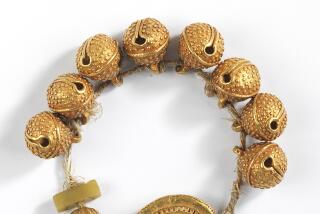Readers React: We can’t ban everything with an ugly past
- Share via
To the editor: Godfrey Harris makes a good case for preserving the right to collect and trade in “antique” ivory. While all should deplore further ivory-hunter slaughter of elephants, it was not until the latter half of the 20th Century that this practice was widely condemned as a barbaric ecological affront. (“How to save both elephants and the ivory trade,” Op-Ed, July 21)
The rationale for constraining antique ivory transactions might similarly apply to stately antebellum mansions serving as tony bed-and-breakfasts in our Deep South.
Before the Civil War, such ornate edifices could be built economically with readily available labor of enslaved Africans. Were it not for the abhorrent practice of slavery, these grand, durable mansions would not have proliferated.
Question for those opposed to collecting and trading antique ivory: Should owners of Southern mansions constructed with slave labor be allowed to profit from their commercial use?
Aaron Mills, Solana Beach
..
To the editor: Harris’ presumptuous claim on how to save elephants and ivory is self-serving and certainly would not have any effect on the eradication of poaching.
The “draconian” rules against ivory trading, as he asserts them to be, seem to be ineffective; therefore, according to Harris they should be discontinued. These rules might not be as effective because they’re not being applied as forcefully as they should be.
It seems that Harris has no compunction as to the provenance of his ivory collection or how the ivory was acquired. The suffering and harm that ivory collectors must endure because they cannot buy, trade or sell is pathetically laughable compared to the suffering that elephants must endure as poachers brutally kill and torture these magnificent beasts for their ivory tusks.
Giuseppe Mirelli, Los Angeles
More to Read
A cure for the common opinion
Get thought-provoking perspectives with our weekly newsletter.
You may occasionally receive promotional content from the Los Angeles Times.









